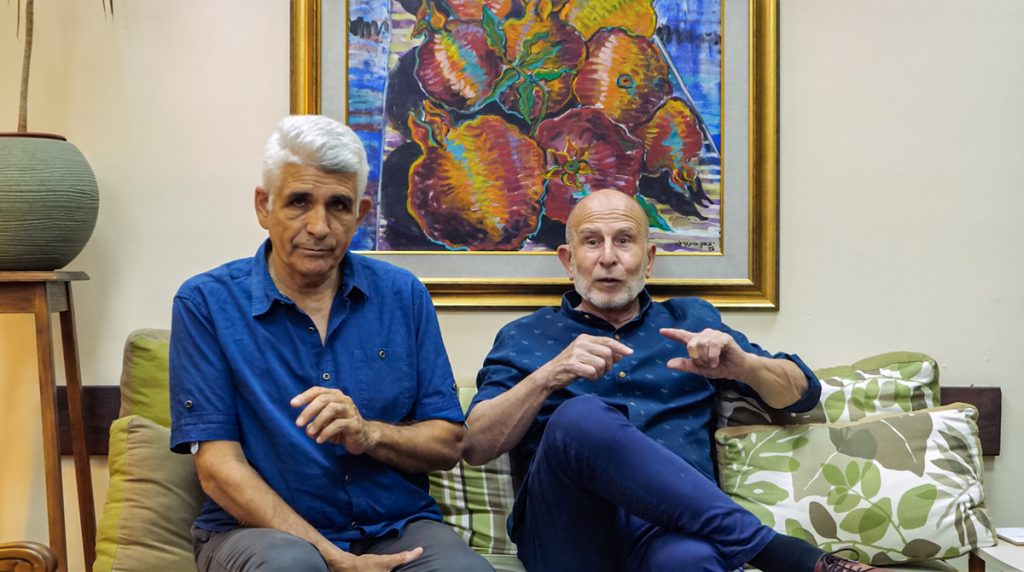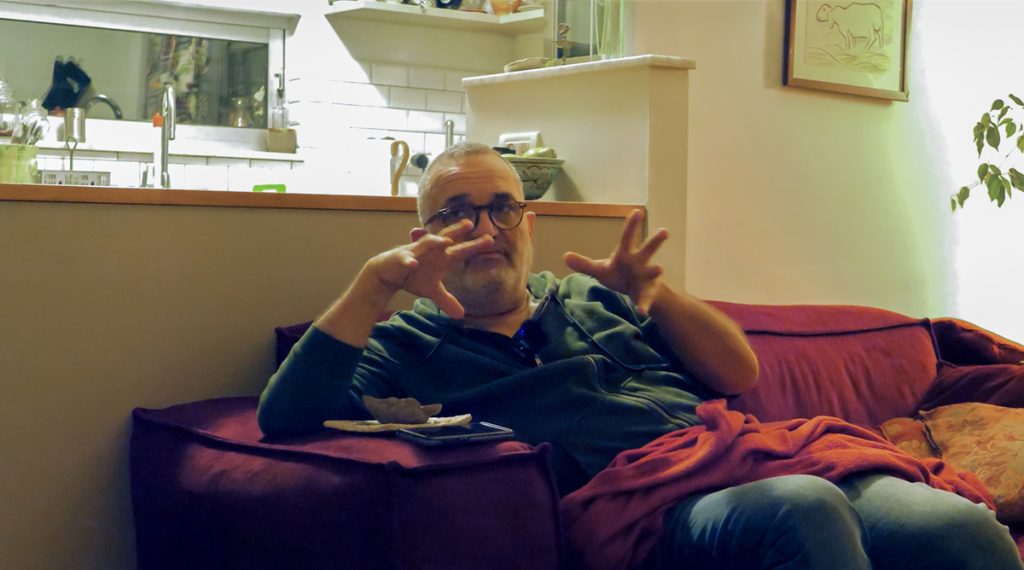A project by Laura Oldörp and Lilian Wunschik
University of Applied Sciences Düsseldorf
with Prof. Anja Vormann
Israeli society is strongly family oriented. Queer couples are not excluded from the desire to have children and the social pressure to reproduce.
»Where we live in our neighbourhood here on the main street of the city which is the Rothschild Boulevard you regulary see two men or two women as couples walking together, sometimes as families with babies. This has been a perfectly natural part if life in Tel Aviv for the last ten years, and is very nice to live with.«
The term »nuclear family« must therefore be broadened, no longer defined exclusively by traditional heteronormative models, but expanded to include queer life plans and family models. The genetic, biological, legal and social parenthood of a child does not always have to be identical, so a child can have more than two parents at the same time. There are several ways to create a queer family in Israel.


Adoption
The 1992 anti-discrimination law increased the visibility of queer lifestyles, especially around Tel Aviv, and led not only to the first Pride Parade but also to a number of attempts at international adoption of children from Guatemala, Russia, Ukraine, and other Eastern European countries.
In spite of the anti-discrimination law, however, international adoption remained unsuccessful in the years after 1992 due to bans in the country of origin and in 2005 this option was removed altogether. Since 2008, however, same-sex couples enjoy equal adoption rights with heterosexual couples, although Queer family formation through adoption is bureaucratically complex to the point of being almost impossible. There are a many waiting adoptive parents, very few children, and a tendency for the authority to assign children to religious parents. There is an enormous gap between law and practice in the Israeli adoption process for queer families.
Co-Parenting
Because of this gap, many couples make private arrangements. These are mostly concluded between lesbian women and gay fathers. Custody is awarded to the genetic parents, but all parties involved are socially part of the multi-parent family and raise the child.
Surrogacy
Surrogacy refers to the process by which a woman carries a child for the intended parents after entering a surrogacy contract. As a rule, one of the intended parents is the donor of the genetic material for in vitro gestation of the embryo to be implanted. In this family model, one of the fathers is designated as the genetic father and the exercise of social parenthood is exclusively established with the gay partner. The former gives his sperm for IVF with a mostly anonymously donated egg. The embryo thus conceived is transplanted into a surrogate mother, who then carries the child and gives it to the social parents after birth. This results in the possibility of exclusive parenthood.
In 2017, the Supreme Court ruled the 1996 surrogacy law unconstitutional. This allowed surrogacy in Israel exclusively for married heterosexual couples and was for the treatment of infertility. A year later, single, or unmarried women were given access to the Israeli surrogacy process. As a result, the number of lesbian birth mothers is increasing, as every Israeli woman now has the right to IVF using donor sperm. Health insurance even covers the costs for up to two children born alive per partnership.
Personal status law (marriage, divorce, adoption) and inheritance law is still in the hands of the rabbinate courts, or more precisely, under the jurisdiction of religious courts, including Sharia and church law. The rabbinate is in Orthodox hands. For gay couples who wish to have children, the religiously based denial of permission to start a family with an Israeli surrogate mother not only means enormous bureaucratic hurdles but also huge financial disadvantage, because the surrogacy must be carried out abroad. Commercial surrogacy for gay couples is currently only allowed in the U.S. states of California, Florida and Oregon, as well as in Great Britain.